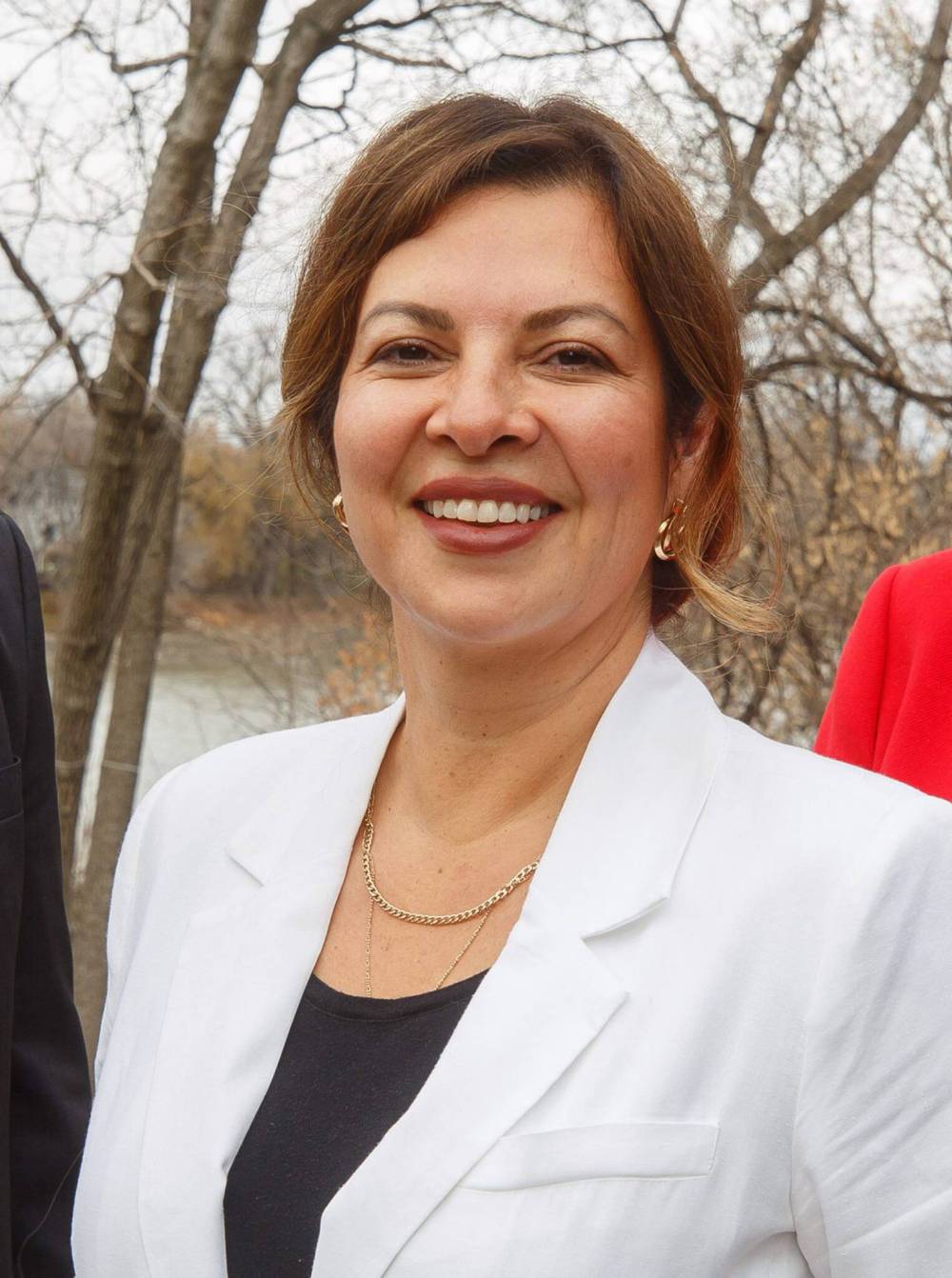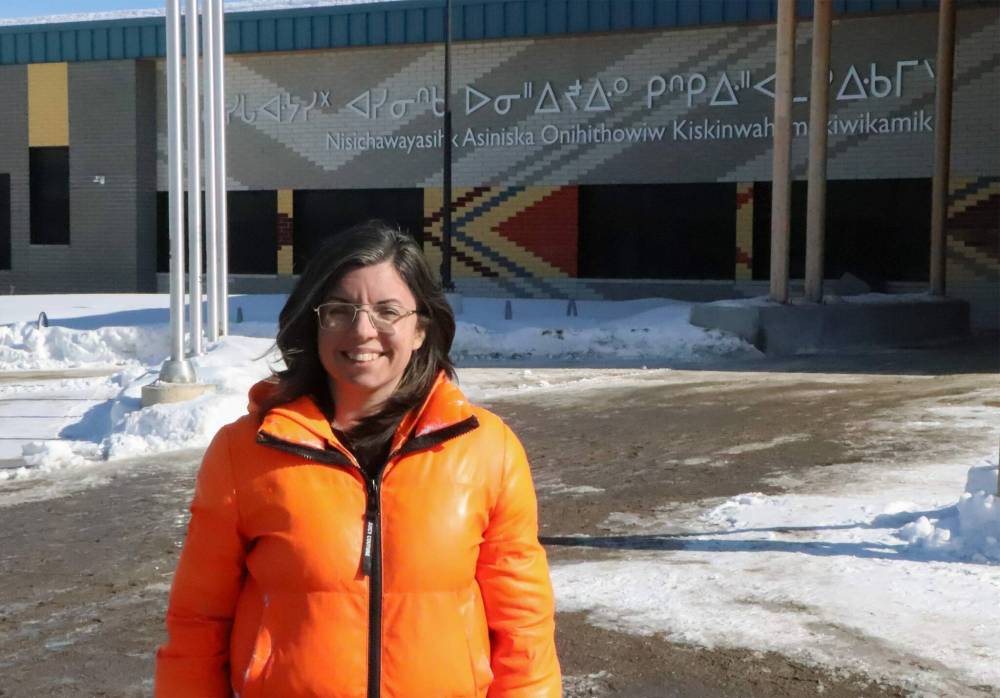Northern rematch NDP veteran faces tough Liberal challenger who almost took seat in 2015 red wave
Read this article for free:
or
Already have an account? Log in here »
To continue reading, please subscribe:
Monthly Digital Subscription
$1 per week for 24 weeks*
- Enjoy unlimited reading on winnipegfreepress.com
- Read the E-Edition, our digital replica newspaper
- Access News Break, our award-winning app
- Play interactive puzzles
*Billed as $4.00 plus GST every four weeks. After 24 weeks, price increases to the regular rate of $19.95 plus GST every four weeks. Offer available to new and qualified returning subscribers only. Cancel any time.
Monthly Digital Subscription
$4.99/week*
- Enjoy unlimited reading on winnipegfreepress.com
- Read the E-Edition, our digital replica newspaper
- Access News Break, our award-winning app
- Play interactive puzzles
*Billed as $19.95 plus GST every four weeks. Cancel any time.
To continue reading, please subscribe:
Add Free Press access to your Brandon Sun subscription for only an additional
$1 for the first 4 weeks*
*Your next subscription payment will increase by $1.00 and you will be charged $16.99 plus GST for four weeks. After four weeks, your payment will increase to $23.99 plus GST every four weeks.
Read unlimited articles for free today:
or
Already have an account? Log in here »
Hey there, time traveller!
This article was published 09/04/2025 (289 days ago), so information in it may no longer be current.
NELSON HOUSE — Niki Ashton is fighting for her political life in Manitoba’s far-flung riding, which has become an intense battleground between the incumbent New Democrat and Liberal Rebecca Chartrand, who almost snatched the seat when the two last faced off, during the red wave that made Justin Trudeau prime minister.
“I’m the only candidate that’s from our region that lives in our region,” said Ashton, who lives in Thompson. “I don’t know how somebody who doesn’t live in our region can represent our region, because the reality is very different.”
Riding profile
Churchill-Keewatinook Aski New Democratic Party: Niki Ashton (incumbent) Liberal Party of Canada: Rebecca Chartrand Conservative Party of Canada: Lachlan De Nardi People’s Party of Canada: Dylan Young Churchill-Keewatinook Aski New Democratic Party: Niki Ashton (incumbent) Liberal Party of Canada: Rebecca Chartrand Conservative Party of Canada: Lachlan De Nardi People’s Party of Canada: Dylan Young There were 82,741 residents living here during the 2021 census. The average age in the riding, which is the fifth largest riding in the country, is 32 with an average income of $40,880. According to a 2021 Manitoba Child and Family Poverty report by the Social Planning Council of Winnipeg, the riding has the highest child poverty rate in the country at 64 per cent. The riding, at 61.1 per cent, has the highest percentage of First Nations people in the country.
This time around, Chartrand’s campaign will be bolstered by a surge in Liberal popularity nationally, thanks to Trudeau’s departure and the election of Leader Mark Carney, a former Bank of Canada governor who has led the response against U.S. President Donald Trump’s punishing tariffs on Canada’s auto and steel sectors.
Ashton, who has represented Churchill-Keewatinook Aski since 2008, is impeded by her party’s low standing in the polls, some of which show support has tanked to below 10 per cent nationally. The NDP is at risk of losing official party status when the votes are counted April 28.
Add to the mix a large geographical area — more than 433,000 square kilometres — that has isolated communities accessible only by plane or rail, and the challenge to reach voters, who are primarily Indigenous, becomes tougher.
This week, the two main candidates were in Nelson House, home to Nisichawayasihk Cree Nation, to give their pitch to community leaders and voters at the community centre.
Chartrand, who is from Pine Creek, is the president and chief executive officer of consulting company Indigenous Strategy. She played up the fact the Liberal party is in position to form government in a two-party race with the Conservatives, and the potential to develop the economy of the mineral-rich area.
“People want to see change, but we can’t assume that we have all the answers as government. We have to get in there and get behind those initiatives,” said Chartrand.
“We have minerals in our backyard, but in order to access those minerals, we have to work in partnership with First Nations because you have to honour the treaties, and you have to ensure you’re following under prior informed consent.”
“People want to see change, but we can’t assume that we have all the answers as government.”–Rebecca Chartrand
Churchill-Keewatinook Aski, where the population of about 81,000 is 61.1 per cent Indigenous, is plagued by low voter turnout. In the September 2021 election, 36.2 per cent of registered voters cast a ballot.
That’s no surprise to Marcel Moody, deputy chief of Nisichawayasihk Cree Nation, who says his people feel they’ve been left behind.
MIKE DEAL / WINNIPEG FREE PRESS FILES Liberal candidate Rebecca Chartrand gets a second chance to knock off Niki Ashton in the north.
“We’re put on a reserve, for us to fend for ourselves. And when we interpret (the word) reserve into Cree, it’s basically ‘leftover land’ — the land that nobody wanted,” he said.
“I think in the last federal election, less than 200 people in our community voted, and we have over 2,000 eligible voters in our community… We need to encourage people to vote, because they do have an impact, whether they know it or not,” said Moody.
Colleen Smook, the mayor of Thompson, northern Manitoba’s largest city, believes political candidates don’t spend enough time talking to residents of remote communities.
“(Thompson has) a population of 13,000, but we’re surrounded by 65,000 people in different communities,” Smook said.
In 2015, Ashton narrowly beat Chartrand — 45 per cent to 42 per cent — when the Liberals were being embraced by voters under Trudeau.
During her visit to the First Nation, Ashton said she has proudly worked for Indigenous communities by fighting for clean drinking water, advocating for more staff in nursing stations and supporting the construction of a new high school in Nelson House.
Some elders said Ashton has had little impact on the community aside from lobbying to have the road paved from Highway 391 to the First Nation, which is west of Thompson.
“I’m the only candidate that’s from our region that lives in our region.”–Niki Ashton
As for the new high school, elder Michael Moore said Ashton simply showed up to cut the ribbon.
Another elder gave his take: “For myself, the Liberals are a little more empathetic with our issues, at least they want to listen to us,” said Andrew Wood.
For her part, Chartrand said the Liberals would build the northern economy through investment.
The riding includes the Port of Churchill, an Indigenous-owned port connected to industry by railway.
“We want to see this not as a cost, but an investment in the riding and in the people. We want to get that rail line operating more effectively. That will help with food sovereignty issues and transportation,” she said.
Brett Nicholls / Free Press NDP candidate Niki Ashton in front of Nisichawayasihk Neyo Ohtinwak Collegiate.
Moody said health care, in a sparsely populated area with complex needs, including a high number of diabetes patients, is top of mind.
The local nursing station is operated by two staffers who are run off their feet.
“The biggest challenge that we’re facing (in) the next couple of decades is probably the health-care crisis. We don’t have any doctors in our community, or proper staffing of our health care facilities,” said Moody.
“If people need something addressed or fixed, they have to make an appointment, go through the referral process, and by the time you see a doctor, it’s two years later.”
“The biggest challenge that we’re facing (in) the next couple of decades is probably the health-care crisis.”–Marcel Moody
Smook said the Thompson hospital cannot meet the needs of northerners.
“(The) amount of money that is spent on travel from the communities and from Thompson to the bigger centres to get services, would definitely pretty much build a new hospital,” she said.
She said many problems could be resolved if the federal government provided more direct services to northern communities.
“Don’t give money, give the services. Actually commit to building (facilities) in Nelson House, Split Lake… so that the folks can get help right in their own community and don’t end up on the streets of Thompson,” Smook said.
fpcity@freepress.mb.ca











